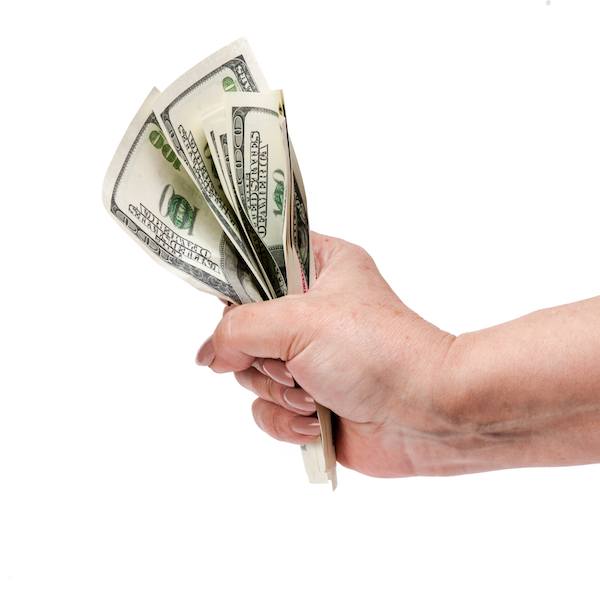Important PPP update for 2021
On December 22, 2020, Congress passed a bill renewing funding under the CARES Act, including an additional $284 billion earmarked for America’s struggling small businesses. The rules and application process for PPP loans and forgiveness have been modified, with more businesses eligible for PPP loans, more expenses forgivable, and a simplified application process.
In this 3-minute read:
- Is it better to get a PPP loan or collect unemployment?
- Can I get a PPP loan if I’m self-employed?
- What are the advantages and disadvantages of PPP loans vs. unemployment benefits
- How you can get up to $50,000 in PPP stimulus money if you’re self-employed or contract working
The CARES Act provides $2 trillion in relief for American businesses and individuals suffering from the financial impact of the COVID-19 pandemic.
A key component for businesses (including independent contractors and self-employed individuals) is the Paycheck Protection Program, which offers forgivable business loans for up to $10 million in order to keep people employed and their paychecks coming during the crisis.
Womply has made email marketing truly automatic for busy small business owners and all types of independent contractors. Learn more, plus get free reputation monitoring and customer insights when you sign up for Womply Free!
However, human nature being what it is, some employees and self-employed individuals have determined that they actually will make more money claiming unemployment than they would accepting a PPP paycheck, and there seems to be some merit to this position, depending on pay level and other circumstances.
When does it make more sense to apply for unemployment vs. getting a PPP loan?
The CARES Act has expanded unemployment benefits and removed some restrictions, allowing some people who previously wouldn’t have qualified for benefits to apply, and increasing the weekly benefit amount by $600, among other things.
(And yes, self-employed individuals, independent contractors, and sole proprietors can apply for PPP loans. Click here for full details.)
This situation has left many self-employed individuals wondering if it would make more sense for them to apply for a PPP loan or to file for unemployment. Let’s break it down with the help of North Carolina State’s Poole College of Management.
In this article, Richard Barnes, lecturer in the Poole College of Management’s department of accounting at North Carolina State University, goes over some key issues that self-employed workers should consider when deciding whether they should apply for a PPP loan or file for unemployment.
The short answer, according to Barnes, is that almost all self-employed taxpayers with their own employees will receive more money through PPP (not counting shareholder-employees of C or S-corporations).
However, for self-employed individuals without employees, whose typical profit and business expenses combined are less than $950 per week, the simplest option is to seek unemployment benefits. These people will be able to completely recover their lost income and business expenses via unemployment benefits, with no limitations on how they spend the received funds, Barnes says.
(Under the PPP, at least 75% (now 60%) of the funds must be used to cover payroll, and the remaining may be used for business mortgage interest, rent, utilities, and other approved expenses, in order for the loan to be forgiven. Read our article about how to get your PPP loan forgiven for full details.)
Changes to unemployment benefits under the CARES Act make unemployment even more attractive in some cases
And it gets a little stickier: since the PPP funding’s “covered period” is the 8 weeks (now 24 weeks; see important update here) after your loan is approved, and the current unemployment benefit period is actually 13 weeks (and as noted above, in some cases the requirement to demonstrate that you are seeking employment is lifted), according to Barnes, “This raises the switchover point for a taxpayer from $950.00 to $1,543.75 per week in combined normal net earnings from self-employment, plus continuing business rent, mortgage interest and utilities.”
In other words, Barnes says, “Taxpayers normally earning more than $1,543.75 per week, plus continuing business expenses, will prefer PPP, while taxpayers earning less than that amount, plus continuing business expenses, will prefer unemployment compensation.”
Please refer to the full article for deeper detail and more examples and calculations.

We also echo Barnes’ advice that “All self-employed taxpayers, regardless of size, should seek the advice of appropriate business advisers to guide them in these decisions . . . . consult with a tax attorney or certified public accountant for advice appropriate to [your] specific circumstance.”
Is it wrong to collect unemployment if I could qualify for a PPP loan?
You may or may not make a personal, ethical, or political distinction between a “forgivable emergency business loan” and collecting unemployment benefits, and if one seems more palatable to you, then you’re free to make the decision that sits best with you, assuming you follow all applicable laws.
The main thing to remember is the government is providing assistance and guidance, and is expecting participants to follow in good faith.
But from a purely monetary standpoint, there are circumstances under which it might make more financial sense to choose one course of action over the other.
Also note that the figures above are calculated based on North Carolina’s numbers, so it may not be applicable generally. We urge you to do your own research, consult with your experienced business/financial advisor, and confirm the figures you use to determine your proper course of action.
Win new customers and build loyalty with your existing customers with Womply Email Marketing
Womply has made Email Marketing truly automatic for busy small business owners, independent contractors, and sole proprietors. Womply helps you turn customers into regulars and get more repeat business with targeted emails that send automatically when customers transact with you. Build customer loyalty and revenue, and get more repeat business with just a few clicks!
Learn more, plus get free reputation monitoring and customer insights when you sign up for Womply Free!